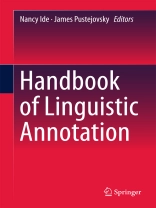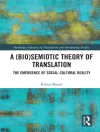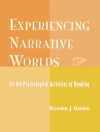This handbook offers a thorough treatment of the science of linguistic annotation. Leaders in the field guide the reader through the process of modeling, creating an annotation language, building a corpus and evaluating it for correctness. Essential reading for both computer scientists and linguistic researchers.
Linguistic annotation is an increasingly important activity in the field of computational linguistics because of its critical role in the development of language models for natural language processing applications. Part one of this book covers all phases of the linguistic annotation process, from annotation scheme design and choice of representation format through both the manual and automatic annotation process, evaluation, and iterative improvement of annotation accuracy. The second part of the book includes case studies of annotation projects across the spectrum of linguistic annotation types, including morpho-syntactic tagging, syntactic analyses, a range of semantic analyses (semantic roles, named entities, sentiment and opinion), time and event and spatial analyses, and discourse level analyses including discourse structure, co-reference, etc. Each case study addresses the various phases and processes discussed in the chapters of part one.
Table of Content
Part One.- Introduction.- Designing annotation schemes: from theory to model.- Designing Annotation schemes: from model to representation.- Community standards.- Creating annotations.- Using annotations.- Part Two: Case Studies.- General Corpora.- Treebanks.- Semantic annotation.- Discourse level annotation.- Speech (transcribed).- Biomedical annotations.
About the author
Nancy Ide is Professor of Computer Science at Vassar College in Poughkeepsie, New York, USA. She has been in the field of computational linguistics for over 30 years and made significant contributions to research in word sense disambiguation, computational lexicography, discourse analysis, and the use of semantic web technologies for language data. She is founder of the Text Encoding Initiative (TEI), the first major standard for representing electronic language data, and later developed the XML Corpus Encoding Standard (XCES). More recently, she co-developed the ISO LAF/Gr AF representation format for linguistically annotated data. She has also developed major corpora for American English, including the Open American National Corpus (OANC) and the Manually Annotated Sub-Corpus (MASC), and has been a pioneer in efforts to foster open data and resources. Professor Ide is Co-Editor-in-Chief of the journal Language Resources and Evaluation and Editor of the Springer book series Text, Speech, and Language Technology.
James Pustejovsky is the TJX Feldberg professor of computer science at Brandeis University in Waltham, Massachusetts, United States. His expertise includes theoretical and computational modeling of language, specifically: Computational linguistics, Lexical semantics, Knowledge representation, temporal and spatial reasoning and Extraction. His main topics of research are Natural language processing generally, and in particular, the computational analysis of linguistic meaning. He proposed Generative Lexicon theory in lexical semantics. His other interests include temporal reasoning, event semantics, spatial language, language annotation, computational linguistics, and machine learning.












